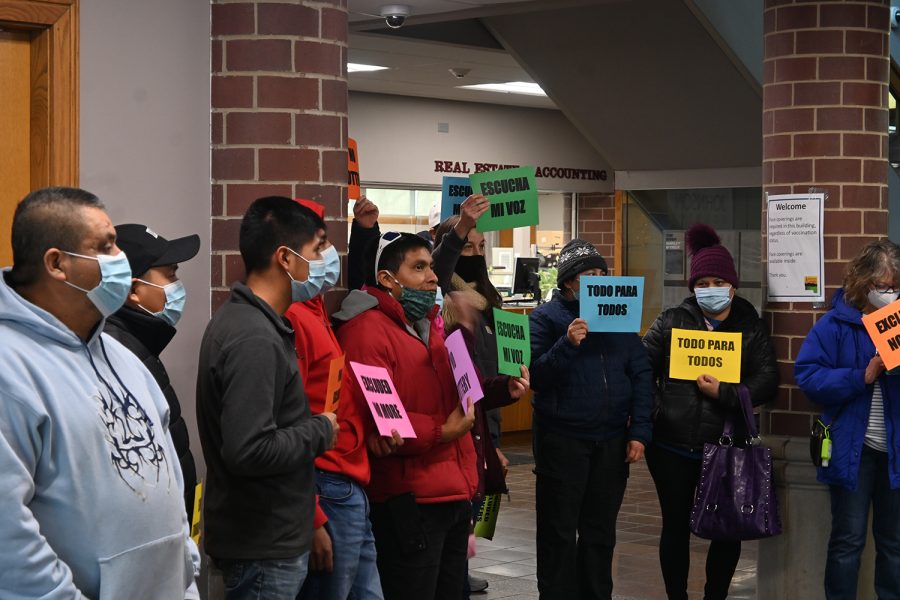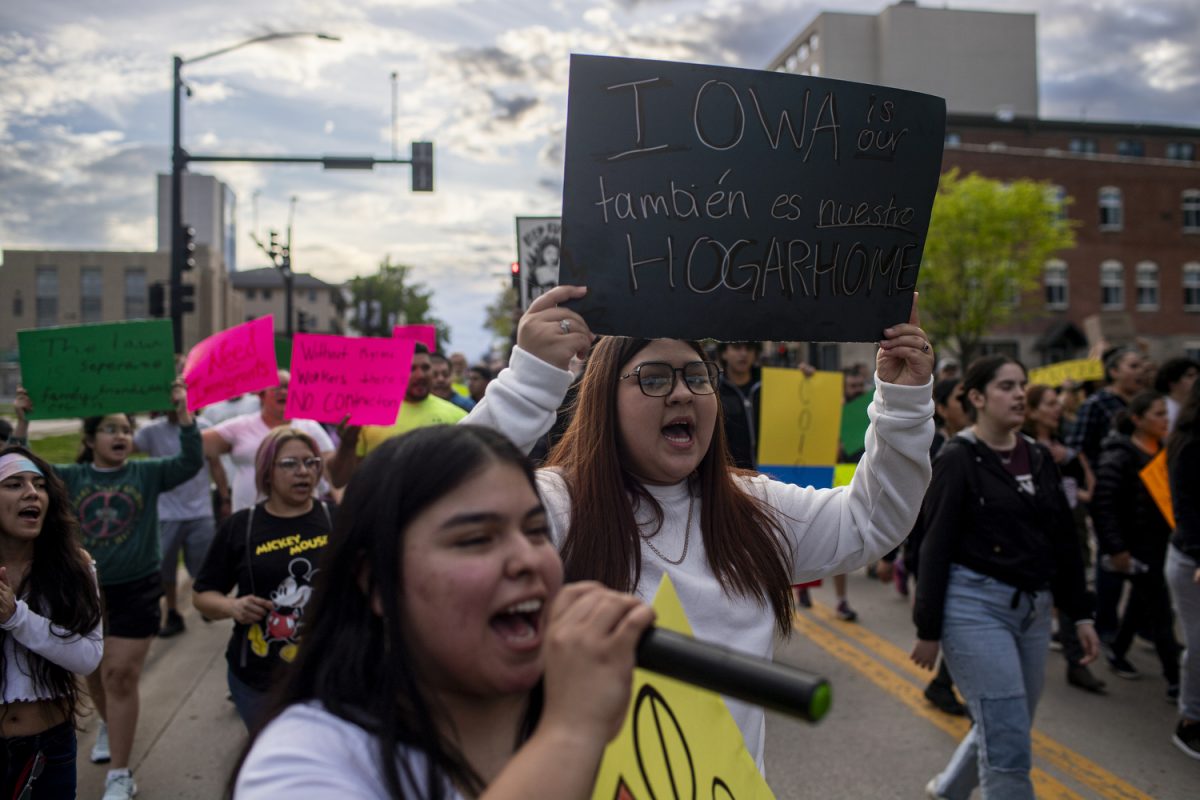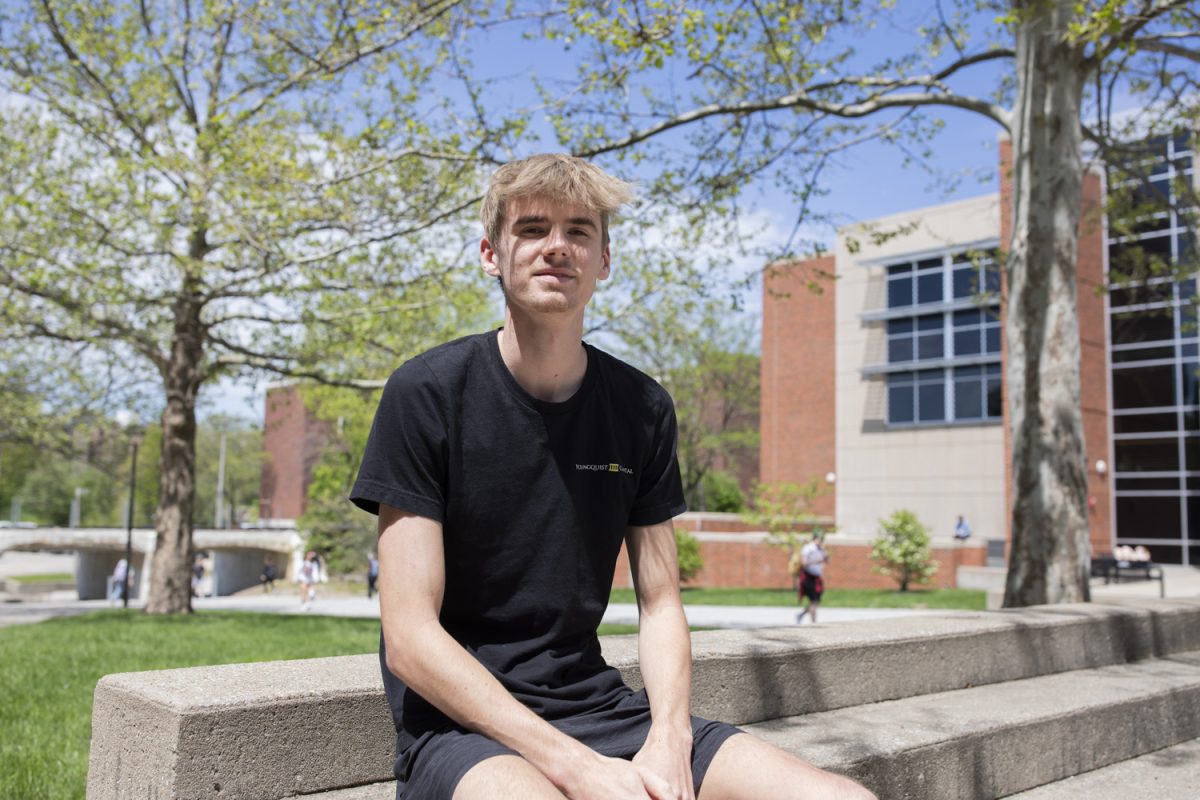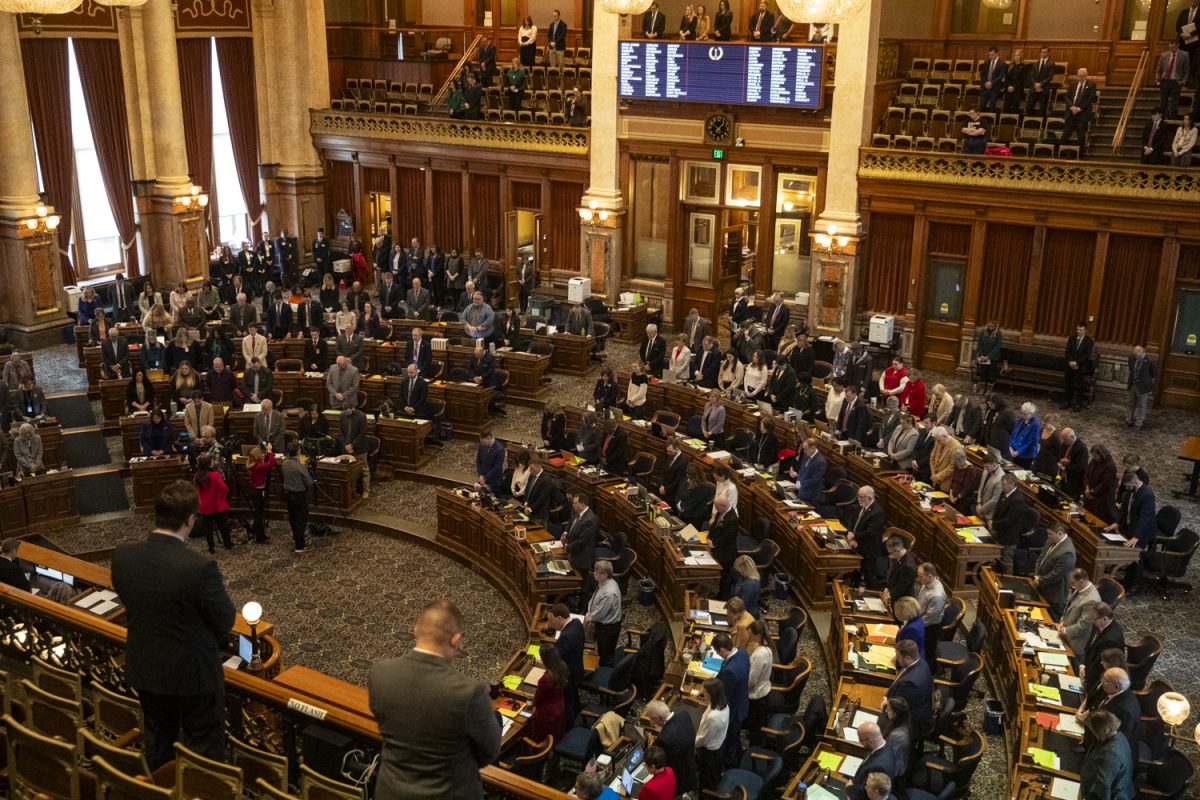Johnson County nonprofit Escucha Mi Voz sent a letter on April 10 to the Johnson County Board of Supervisors criticizing its decision to shift $1.5 million of ARPA funding slated for an affordable housing project.
The supervisors said the funding has been reallocated to the county’s general funds and the affordable housing project remains ongoing.
This letter follows the supervisors’ April 3rd vote to move the $1.5 million in funding for an affordable housing project that was initially designated from the American Rescue Plan Act, or ARPA, a federal COVID-19 stimulus package to the county’s general funds.
Supervisors cited new federal guidelines and a desire to avoid potential complications surrounding the use of ARPA funds as the reason for this shift. They maintain that the dollar amount committed to affordable housing remains unchanged and will now come from the county’s internal budget.
Supervisors Vice Chair Jon Green said that details regarding the specific housing project cannot be disclosed, as the project is still in its development phase.
“I am comfortable that we’ll be making an announcement soon,” Green said.
The letter argues that recent changes to the U.S. Treasury Department guidelines make ARPA funds uniquely suited for the project and that alternative funding sources are unlikely to provide the same long-term affordability guarantees.
“Escucha Mi Voz Iowa members urge you to immediately restore and restart the $1.5 million ARPA-funded affordable housing project you halted on April 3 without public notice or input,” the letter reads.
At an April 17 budget hearing, five Johnson County residents who immigrated to Iowa from various South American countries addressed the board.
“I am here not just on behalf of myself but other voices asking that you would work together with our organization Escucha Mi Voz to have funds available for affordable housing,” Angel Soto, a six-year resident of Johnson County who immigrated from Honduras, said. “Because we don’t have certain immigration statuses it’s very hard to find good housing.”
Similar sentiments were shared by Ninoska Campos, a Johnson County resident who also immigrated from Honduras.
“I worry about access to affordable housing and sometimes the county itself has discriminatory practices,” Campos said.
Petra Mujica, another community member who immigrated from Venezuela and obtained U.S. citizenship, urged the board to consider the unique needs of immigrant children who have disabilities.
“A lot of these children live in homes where there are up to eight people in the same household. Children who need a designated space,” Mujica said, referring to immigrant children with special needs. “That’s why we are here. That’s why I support Escucha Mi Voz.”
A March 8 health equity report by Escucha Mi Voz, titled Salud, Techo, y Trabajo, revealed a troubling housing crisis for immigrants and refugees in Johnson County. Over a third of those surveyed live in overcrowded, multi-family housing situations. Many of these households likely qualify as technically homeless due to their living conditions, the report states.
Green said county officials face unique challenges in addressing the needs of people who are living in or immigrating to the county without legal permission.
“The fact of the matter is we don’t know who, in terms of immigration status, our affordable housing is helping,” Green said. “Because we specifically do not collect that information because we don’t want to become a clearinghouse for every undocumented person in Johnson County.”
Supervisors Chair Rod Sullivan said trust was broken between Escucha Mi Voz and the supervisors due to the nature of the April 10 letter.
Sullivan addressed this concern at an April 17 work session after the findings of a Whole Worker Health Equity Survey, Report, and Needs Assessment, which Escucha Mi Voz conducted with Johnson County Public Health, were presented.
The survey recommended full county funding of innovative community health partnerships and the development of new permanent supportive housing for immigrant and refugee workers.
“These recommendations, I agree with everyone. I think they’re all important,” Sullivan said at the work session. “Recently, Johnson County was discussing affordable housing and got a letter from Escucha Mi Voz that misrepresented what happened in terms of the discussion. So when we’re talking about communication and trusted partners, I want to make sure that works both ways.”
In an interview with The Daily Iowan, Sullivan countered certain claims outlined in the letter by Escucha Mi Voz.
The letter states that “The county has already kept millions of ARPA dollars for itself, by claiming you lost revenue in the pandemic and through the creation of new administrative positions.”
Sullivan said certain ARPA funds were initially allocated to establish county staff positions to facilitate the effective utilization of federal funding. He said this step was necessary to enable the utilization of the funding.
“But we are not, as they accused us of, we are not moving money to hire new staff people,” Sullivan said. “That’s simply not happening.”
The letter from Escucha Mi Voz also stated the 20-year compliance requirement tied to ARPA funding would ensure accountability in providing long-term affordable housing.
“Swapping out ARPA funding for another source is not a real alternative unless there is also an equal guarantee that the project will still be affordable to tenants at or below 120 percent AMI for 20 years. Without these guarantees, the county could claim the mantle of affordable housing while still charging market-rate rent like any other landlord,” the letter states.
Sullivan said Johnson County has a longstanding commitment to affordable housing, with affordability terms extending to 30 years.
“Had they done their research, they would have seen that they were complaining that we are not going to do something that we have always surpassed in our history,” Sullivan said.
Johnson County budget records indicate that $600,000 of the county’s budget was allocated to address affordable housing in fiscal 2018, and over $650,000 in fiscal 2019, before ARPA passing in 2021.
This prior funding was allocated to the Johnson County Housing Trust Fund to increase the availability of subsidized rental and housing units for low-income residents.
The housing trust fund’s website reports that the county has provided over $15 million in loans and grants to aid low-income households with housing needs and partnered with outside entities as additional funding sources to address affordable housing shortages. As of 2022, the Housing Trust Fund created over 1,000 affordable housing units, according to its website.
Escucha Mi Voz’s letter states that ARPA funding is preferred over county general funds for the affordable housing project because of ARPA’s broader income criteria.
According to the letter, ARPA allows for projects that accommodate working families earning up to 120 percent of the area median income (AMI) for at least 20 years, whereas other federal programs typically limit funding to tenants earning at or below 65 percent AMI.
Sullivan and Green said affordable housing projects are aimed at residents with a significantly lower AMI.
RELATED: Johnson County Supervisors change funding for affordable housing initiative
“It’s clear that our biggest need in Johnson County is for people who are really, really poor, generally under 30 percent of area median income. That is where we have the largest gap in affordable units,” Green said. “So 120 percent AMI isn’t something that we’re even contemplating. We have to address things for folks at the very bottom.”
Green commended the overall work of Escucha Mi Voz and said the conflict may come from a lack of full knowledge of complex ARPA guidelines by Escucha Mi Voz advocates.
“Which is completely understandable because they have advocacy work to do and probably can’t spend time reading 500-page legal documents from the treasury,” Green said. “I will never ding anybody for passionately advocating for their cause.”
Sullivan said the supervisors will navigate the ramifications of this letter and continue to work toward the goal of increasing affordable housing in Johnson County.
“There are people in this community who are looking to get things done, and there are people in this community who are looking to cause trouble,” Sullivan said. “I want Johnson County to be squarely on the side of looking to get things done.”
David Goodner, an organizer of Escucha Mi Voz and co-signer of the April 10 letter, wrote in an email to the DI that he hoped elected officials would notice the testimony of community members.
“ … No matter what kind of spin they put on their housing and assistance policies that have always left undocumented workers behind, marginalized, and excluded from the relief other residents take for granted,” Goodner wrote.













